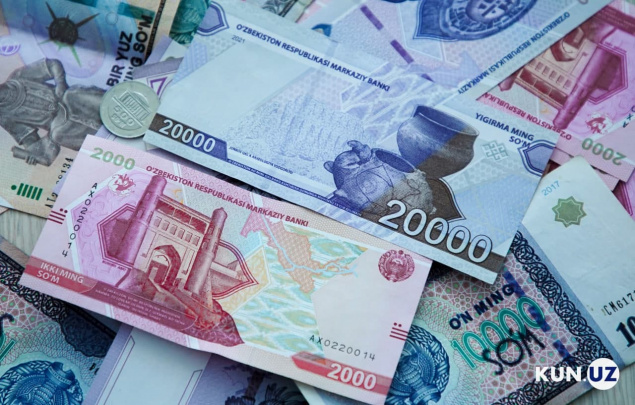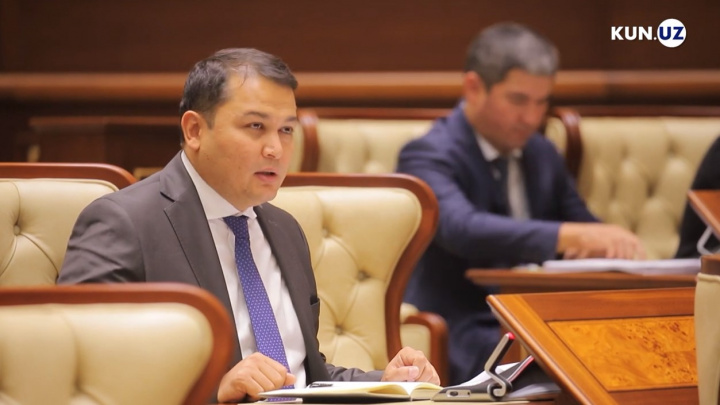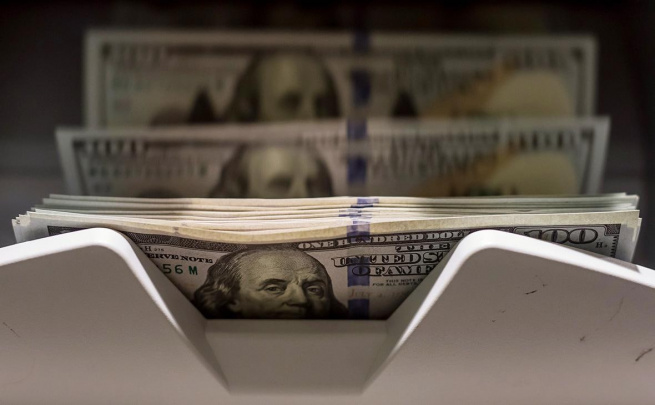Deputy Finance Minister explains why Uzbekistan’s external debt is increasing
In an interview with Kun.uz correspondent, Deputy Finance Minister Odilbek Isakov explained the dynamics of public external debt and budget issues during the pandemic and global crisis.
We all know that there are two types of external debt: public external debt and private external debt. Today, the country’s external debt has grown slightly: as of the beginning of 2020, the external debt is equal to 30% of GDP. What are the reasons for this growth and what factors are expected to increase the public external debt in the future?
Very good and topical question. First of all, let’s talk about the factors of the growth of public external debt. The Ministry of Finance regularly submits reports on the state of the country’s external debt. A review of the state of public debt in 2019 was published yesterday. This is now also available on the Finance Ministry’s website and official Telegram channel.
As of January 1, the state’s external debt was $15.6 billion. This debt includes not only the direct debt of the state but also the guarantees provided by the state for external debt.
What are the reasons for the growth of this debt? Thanks to the reforms being carried out under the leadership of our President, modernization, construction of new production facilities, implementation of new infrastructure projects are now financed by public external debt.
Turning to the numbers, 29% of the public debt ($4.5 billion) so far has been spent on the energy sector. $2.1 billion has been allocated to improve transportation and transportation infrastructure, $1.9 billion – on agriculture, $1.8 billion – on housing and utilities. The fund is mainly spent on such projects as drinking water, sanitation, improvement of living conditions in remote rural areas, improvement of living standards.
So far, loans in the amount of $600 million have been attracted to education and health.
It should be noted that while many countries have borrowed to cover their budget deficits, we are mainly borrowing to finance these investment projects.
True, we are also borrowing this year to cover the budget deficit. The reason is that due to the pandemic, budget revenues are falling sharply, and expenditures are rising. But in general, we differ from other countries – most of the loans we receive are spent on self-financing projects.

Due to the pandemic, the budget is also severely damaged. This is the case all over the world. As a result of restrictive measures, both demand and supply fell, there were no tax revenues, and budget revenues declined. Now the government has established the Anti-Crisis Fund. This Fund will also be formed on the basis of public external debt. We can expect the government’s external debt to increase again in the future, can’t we?
The Anti-Crisis Fund is a source of funding worth 10 trillion soums, but so far we have transferred about 2.1 trillion soums to the Fund, mainly from the fiscal reserves of the Ministry of Finance.
Part of it consisted of dividends, the rest – more than $1 billion in fiscal reserves had been accumulated through previously borrowed loans. According to the presidential resolution of April 22, loans are being attracted to support the budget, and not all of these loans will be attracted to the Anti-Crisis Fund. Perhaps some will be involved in other budgetary payments as well.
Due to this pandemic, quarantine regime and other reasons, a decline in imports and in the flow of tourists is affecting the budget revenues. For example, the February expenditure forecast differs by 1.8 trillion soums from the April one.
First of all, we are raising funds for social support of our population, timely delivery of salaries, pensions and other similar obligations.
In an interview with Deputy Finance Minister Odilbek Isakov, the sides exchanged views on the declining GDP, the growing dynamics of public external debt and the effective use of borrowed funds.
One can watch the complete interview on YouTube.
Related News

16:06 / 26.12.2022
Deputy Minister of Finance calculates how much reduction of state organizations will lessen budget expenses

11:43 / 05.08.2022
Deputy Minister of Finance says how the public debt will be paid off

11:56 / 26.03.2022
Uzbekistan’s external debt nears $40 billion

11:43 / 12.03.2022




